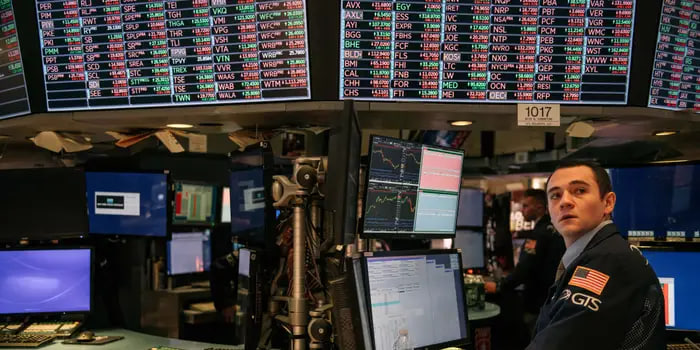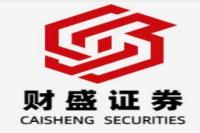Hong Kong Market Slump: Decoding the November 12th Dip & Future Outlook (Meta Description: Hong Kong stock market, Hang Seng Index, Hang Seng Tech Index, market analysis, investment strategy, November 12th market crash, Asian markets, global economy)
Dive Deep into the Hong Kong Market's Recent Plunge: A Comprehensive Analysis
Whoa! The Hong Kong market took a serious nosedive on November 12th, leaving many investors scratching their heads. The Hang Seng Index plummeted by a hefty 1.73%, while the tech-heavy Hang Seng Tech Index took an even bigger hit, falling a whopping 2.25%. This wasn't just a minor blip; it was a significant drop that sent shockwaves through the financial world. But before you panic and sell everything, let's take a deep breath and dissect this market movement. This isn't just another news report regurgitating numbers; this is a comprehensive analysis offering insights gleaned from years of experience in navigating the complex landscape of Asian markets. We'll unpack the potential causes behind this slump, discuss the implications for investors, and explore what the future might hold for the Hong Kong stock market. Forget dry, academic jargon – we're going to break down this complex situation in plain English, using real-world examples and practical strategies to help you make sense of it all. We'll explore the interconnectedness of global events, examine the role of specific sectors in the downturn, and offer actionable advice for both seasoned investors and those just starting their financial journey. Get ready – this is more than just data; it’s a roadmap to understanding the Hong Kong market's current state and charting a course for future success. We'll even address some common investor anxieties and misconceptions, leaving you feeling empowered and informed. So buckle up, because we're about to embark on an insightful journey through the heart of the Hong Kong market's recent turbulence.
Hang Seng Index & Hang Seng Tech Index: A Detailed Breakdown
The Hang Seng Index (HSI) and the Hang Seng Tech Index (HSTI) are crucial barometers of the Hong Kong stock market's health. The HSI, a broad-based index representing the largest companies listed on the Hong Kong Stock Exchange (HKEX), provides a general overview of market performance. The HSTI, on the other hand, focuses specifically on the technology sector, giving a more targeted view of this dynamic and influential industry. The simultaneous decline in both indices on November 12th indicates a widespread market correction, rather than a sector-specific issue. This suggests underlying systemic factors are at play. But what are these factors? Let's delve into the potential culprits.
Potential Factors Contributing to the Market Decline
Several intertwined factors likely contributed to the November 12th market slump:
-
Global Economic Uncertainty: The global economy is currently facing numerous headwinds, including persistent inflation, rising interest rates, and geopolitical instability. These factors create uncertainty, impacting investor sentiment and leading to risk aversion. Think of it like this: when the global economy feels shaky, investors tend to retreat to safer assets, causing a sell-off in riskier markets like Hong Kong.
-
China's Economic Slowdown: China's economy, a significant driver of Hong Kong's growth, is experiencing a slowdown. This slowdown, coupled with ongoing regulatory crackdowns on various sectors (think technology and real estate), is impacting investor confidence in the region. The interconnectedness of the economies means a cough in China can easily trigger a cold in Hong Kong.
-
US-China Relations: The ongoing geopolitical tensions between the US and China continue to cast a long shadow over the Asian markets. Any escalation of these tensions can trigger further market volatility, as investors become wary of potential disruptions to trade and investment flows. It's a delicate balance, and even a whisper of increased tension can cause ripples.
-
Interest Rate Hikes: The aggressive interest rate hikes by central banks worldwide, including the US Federal Reserve, are aimed at curbing inflation. However, these hikes also increase borrowing costs for businesses, potentially slowing economic growth and dampening investor enthusiasm. Higher interest rates mean higher costs for expansion, innovation, and frankly, everything.
-
Investor Sentiment: Market sentiment plays a crucial role. Negative news, whether real or perceived, can quickly spread through the markets, leading to panic selling and amplified declines. It’s a classic case of herd behavior – when one investor sells, others follow suit, creating a self-fulfilling prophecy.
Analyzing the Impact on Specific Sectors
The November 12th decline wasn't uniform across all sectors. Technology companies, understandably, were hit particularly hard, reflecting global concerns about the tech sector's valuation and regulatory uncertainty in China. However, other sectors, such as real estate and financials, also experienced significant drops, indicating a broader market correction. This widespread impact underlines the interconnected nature of the Hong Kong market and its vulnerability to global economic headwinds.
Navigating the Market Volatility: Strategies for Investors
So, what should investors do in the face of such volatility? The answer, as always, depends on individual risk tolerance and investment goals. However, here are some general strategies to consider:
-
Diversification: Don’t put all your eggs in one basket! Diversifying your portfolio across different asset classes and geographical regions can help mitigate risk and cushion the impact of market downturns.
-
Long-Term Perspective: Remember, market fluctuations are normal. If you're investing for the long term, short-term volatility shouldn't cause undue panic. Focus on your long-term goals and stick to your investment strategy.
-
Risk Management: Implement robust risk management strategies, including setting stop-loss orders to limit potential losses. Knowing when to cut your losses is crucial, especially in volatile markets.
-
Stay Informed: Stay updated on market news and events, but avoid emotional decision-making based on short-term fluctuations. Informed decisions are based on data and a well-thought-out strategy, not gut feelings.
-
Professional Advice: Consider seeking advice from a qualified financial advisor. A professional can help you develop a personalized investment strategy tailored to your specific circumstances and risk tolerance.
Frequently Asked Questions (FAQs)
Q1: Is this market dip a sign of a bigger crash?
A1: While the November 12th decline was significant, it's too early to definitively call it a harbinger of a major crash. Market corrections are a normal part of the cycle, and this could be just a temporary setback. However, it's crucial to monitor the situation closely and stay informed about potential risks.
Q2: Should I sell all my Hong Kong stocks?
A2: The decision to sell your Hong Kong stocks depends on your individual circumstances and investment goals. If you’re investing for the long term and believe in the underlying value of your holdings, holding on might be a better strategy. However, if you're experiencing significant losses and are uncomfortable with the risk, you might consider selling some or all of your holdings.
Q3: Are Hong Kong stocks still a good investment?
A3: Hong Kong stocks, like any investment, carry risk. However, the long-term growth potential of the Hong Kong market remains significant, particularly given its strategic location and access to the growing Chinese market. The current dip could present opportunities for long-term investors with a high-risk tolerance.
Q4: What sectors are most affected by this downturn?
A4: The technology and real estate sectors were among the hardest hit, but the decline was broadly felt across the market. This signifies that the downturn is likely connected to broader economic concerns rather than isolated sector-specific issues.
Q5: How can I protect my investments during market volatility?
A5: Diversification, risk management (stop-loss orders etc.), keeping a long-term perspective, and staying informed are key strategies to navigate market volatility. Consider seeking professional financial advice as well.
Q6: What is the outlook for the Hong Kong market in the coming months?
A6: Predicting the future of the market is impossible. The outlook depends on various factors, including global economic conditions, China's economic performance, and geopolitical developments. It's essential to stay informed and adapt your investment strategy accordingly.
Conclusion
The November 12th decline in the Hong Kong market highlights the inherent volatility of the investment world. While the causes are complex and interconnected, understanding these factors and implementing sound investment strategies are crucial for navigating market fluctuations. Remember, informed decisions, a long-term perspective, and diversification are your best allies in this ever-evolving financial landscape. Don't be swayed by short-term panic; stay focused on your financial goals and adjust your approach as needed. The Hong Kong market, despite its current challenges, continues to offer both risks and significant opportunities for investors who approach it with caution and well-informed strategies. Stay tuned, stay informed, and stay invested – wisely.



